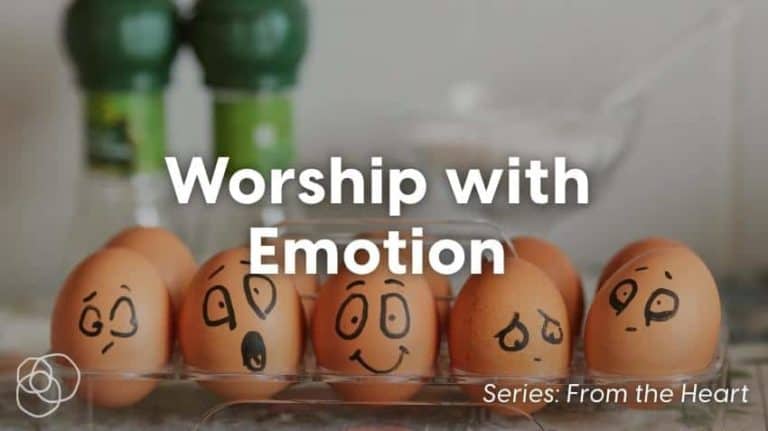
By Erin Bird
I don't know if you've noticed, but our culture is overly fascinated with the “heart.” No, not the physical organ beating in your chest right now, rather some nebulous part of you found within. It has to do with emotion, but it seems to be more than that. For instance, when a recording artist sings “I love you with my whole heart,” we realize (or at least hope!) it is more than just the feelings the singer is having in the moment. But what exactly is meant?
My goal through this new little email-only series I’m entitling From the Heart is not to define our culture’s understanding of the word “heart,” but rather to help you see what God teaches us through the Scriptures. Over the course of the next five weeks, I hope you will see that God teaches us in the Scriptures He has made our “heart” the seat of our emotions, our minds, and our will, from which come our words, actions, and even our worship of God.
Heart of Emotion
This week, I want to start with the most obvious aspect of the heart - emotion.
Some people are very emotive, while others are more reserved. For instance, one person might leap to their feet in applause after watching a great performance while their seat mate might smile and politely clap.
We see this in worship through song on Sunday mornings. Some people raise their hands while singing the lyrics at the top of their lungs, while others keep their hands at their sides mumbling the words so low the person next to them can’t hear them. What sometimes happens in these moments is the emotive person thinks the non-emotive individual is less in love with God than them, and the non-emotive person thinks the emotion-filled individual is a bit cuckoo for Cocoa Puffs.
So let me talk to both of these people.
To the non-emotive person...
I want to point out that God created humans with emotions. How do I know? Well, God has created us in His image, and He has emotions. We see in the Scripture that the Triune God experiences joy (Zephaniah 3:17), sorrow (Genesis 6:6), anger (Deuteronomy 3:26), grief (Ephesians 4:30), and more. So if our Divine Creator has made us in His image, then we too should experience emotion. Which means it is more than okay to worship God in a way that your emotions are touched.
To the more-emotive person...
I would caution you to be careful to not be controlled by your emotionor to even chase after certain emotions. In several of Paul’s letters (I’m thinking particularly of Ephesians 5 and Galatians 5), we are instructed to be controlled by the Holy Spirit. We may have been created as emotional beings, but sin often tries to twist our emotions, leading us into sin rather than worship. True worship isn’t just about getting a certain feeling, it is about ascribing worth to God. So what we chase in worship is God’s glory, not a certain emotion. (Which means, the less-emotive person might be deeply worshiping God even though their hands aren’t raised.)
To end, let me draw your attention to a story from the book of 1 Samuel. In chapter 16, the prophet Samuel was instructed by God to go to the household of a man by the name of Jesse to anoint one of Jesse’s sons as the next king of Israel. Several of Jesse’s sons looked quite impressive, but God told Samuel, “No, these are not the one.” This confused Samuel, but God reminded the prophet in verse 7 that “man looks on the outward appearance, but the Lord looks on the heart.”
When you worship on Sundays through song, or worship by serving out in the community, or even worship God quietly while sitting with your Bible and some coffee, remember God isn’t nearly as focused on your outward appearance as He is your heart. So engage with Him by bringing your honest self before Him, which includes your emotions.
Receive Riverwood's "News & Notes" weekly email in your inbox. Submit your email address below and stay in the loop.

We are on a mission to help people love like Jesus loved and live like Jesus lived.
It doesn't matter to us if you:
No matter where you are in your spiritual journey, we want to help you become who God has created you to be.